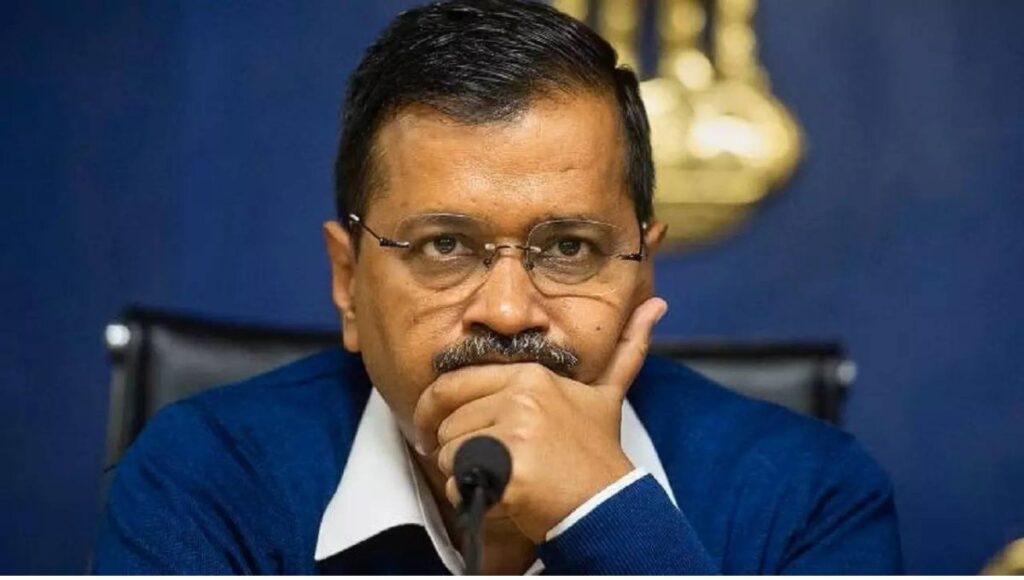In a significant development, the Supreme Court of India has declined an urgent hearing of Delhi Chief Minister Arvind Kejriwal’s plea seeking a 7-day extension of his interim bail.

The plea was made in connection, and the refusal marks a pivotal moment in the ongoing legal proceedings. This decision could have profound implications for Kejriwal and the political landscape of Delhi.
Supreme Court Declines Urgent Hearing on Arvind Kejriwal’s 7-Day Interim Bail Extension
Chief Minister of Delhi, Arvind Kejriwal, requested that his application for a seven-day extension of his provisional bail to allow for medical testing be urgently listed in the Supreme Court.
Arvind Kejriwal, the chief minister of Delhi, requested an urgent hearing on Tuesday, but the Supreme Court vacation bench declined to grant his request for a seven-day extension of his interim parole due to medical reasons. The Chief Justice of India should decide whether to list the plea, according to the vacation bench.
Arvind Kejriwal, who was arrested in a money laundering case linked to the now-scrapped Delhi excise policy and lodged in Tihar Jail, is supposed to surrender on June 2.
Senior attorney Abhishek Singhvi, representing the chief minister of Delhi, made submissions that were noted by a vacation bench made up of Justices JK Maheshwari and KV Viswanathan. The bench stated that the “Honourable CJI” would decide whether to list the interim plea because the judgement in the main matter has been reserved.
The bench questioned Abhishek Singhvi about why, last week, Arvind Kejriwal’s plea was not brought up for urgent listing while Justice Dipankar Datta, a member of the main bench led by Justice Sanjiv Khanna and responsible for granting the chief minister’s interim bail, was occupying the vacation bench.
On May 10, the Supreme Court granted Arvind Kejriwal temporary bail for a period of 21 days, allowing him to participate in the Lok Sabha elections of 2024. It did, however, prevent him from going to his office or the secretariat in Delhi and signing official documents unless it was absolutely required to have the lieutenant governor’s assent.
Also Read: CM ARVIND KEJRIWAL RELEASED ON INTERIM BAIL: A DETAILED ANALYSIS
The plea said the chief minister is required to undergo some medical tests and for this purpose, the interim bail, which is ending on June 1, be extended.
Since his “sudden and unexplained weight loss, coupled with high ketone levels” are symptomatic of kidney, major cardiac problems, and even cancer, Arvind Kejriwal has requested an extension to undergo a number of medical tests, including a PET-CT scan.
The issue concerns purported corruption and money laundering during the creation and implementation of the excise policy for 2021–2022 that the Delhi government ultimately decided to abandon.
FAQs:
1. What was Arvind Kejriwal seeking from the Supreme Court?
Arvind Kejriwal was seeking a 7-day extension of his interim bail from the Supreme Court of India.
2. Why did the Supreme Court decline an urgent hearing for Kejriwal’s plea?
The Supreme Court declined the urgent hearing, but the specific reasons for this decision have not been detailed in the available information.
3. What case or charges is Arvind Kejriwal’s bail related to?
The details of the specific case or charges related to Arvind Kejriwal’s bail have not been mentioned in this context. For precise information, one would need to refer to the legal documents or reports related to the case.
4. How might this decision impact Arvind Kejriwal and Delhi politics?
The Supreme Court’s refusal to grant an urgent hearing for the bail extension could have significant political and legal repercussions for Arvind Kejriwal, potentially affecting his position and activities as the Chief Minister of Delhi.
5. What are the next legal steps for Arvind Kejriwal following this decision?
Following the Supreme Court’s decision, Kejriwal’s legal team may consider other legal avenues, such as filing a fresh application or appealing to a different bench. The specific next steps would depend on the advice of his legal counsel.
6. Has there been any official statement from Arvind Kejriwal or his party regarding this decision?
As of now, there has been no official statement from Arvind Kejriwal or his party, Aam Aadmi Party (AAP), regarding the Supreme Court’s refusal to hear the plea urgently. Further updates may be expected.
7. What is the significance of interim bail in Indian legal proceedings?
Interim bail is a temporary release granted to an accused person while their case is still under consideration. It is significant as it allows the individual to remain out of custody while they prepare their defense or await further court decisions.











Hey, Jack here. I’m hooked on your website’s content – it’s informative, engaging, and always up-to-date. Thanks for setting the bar high!